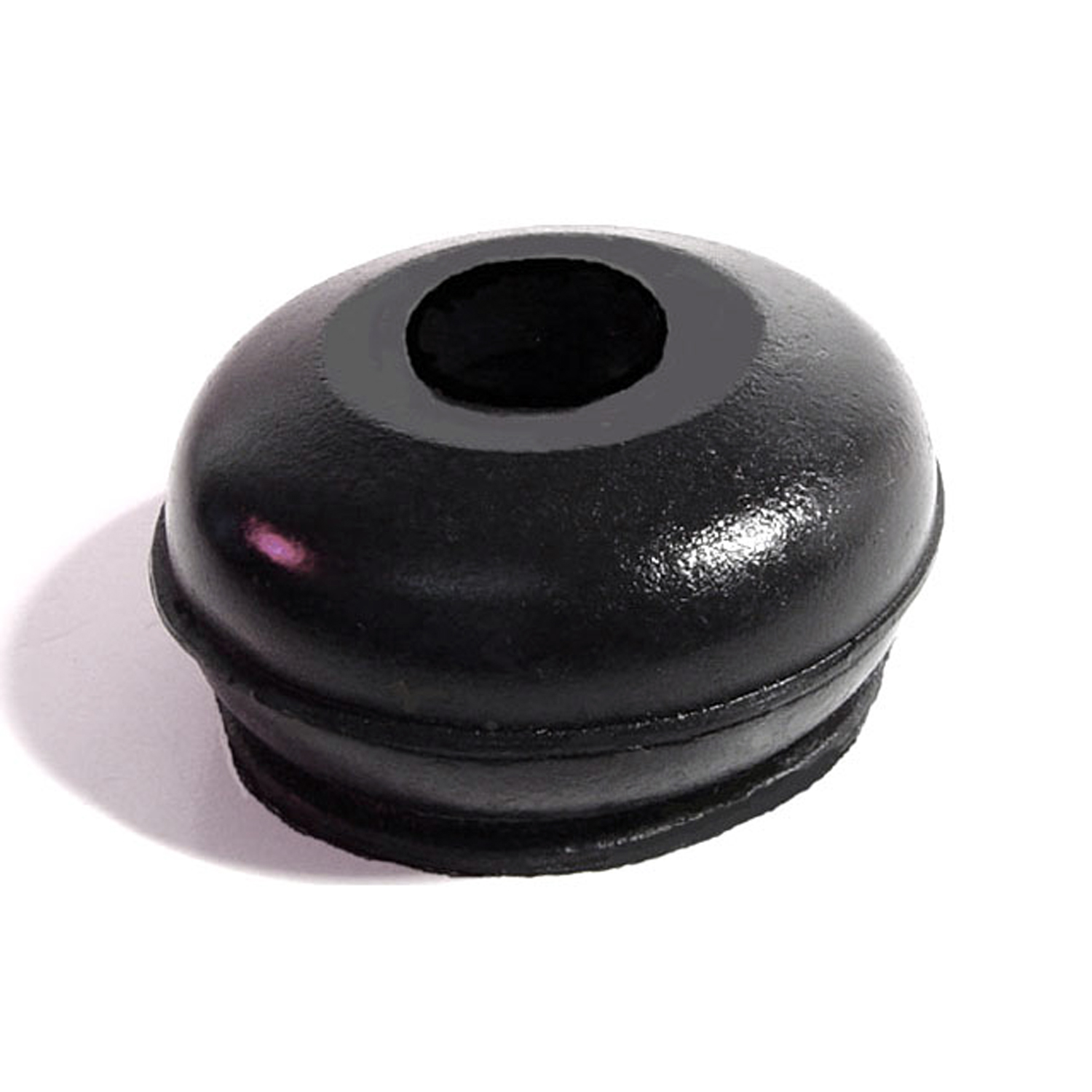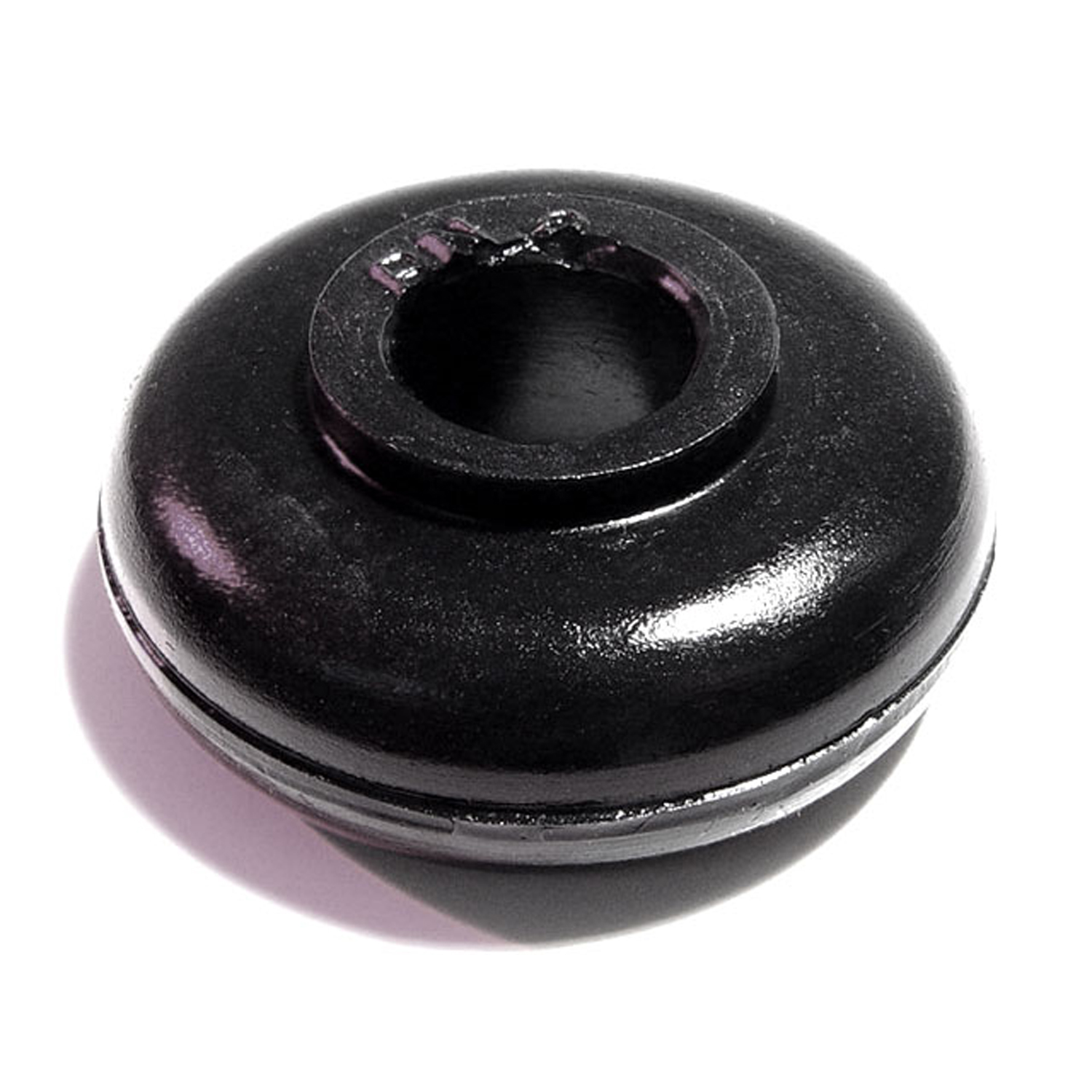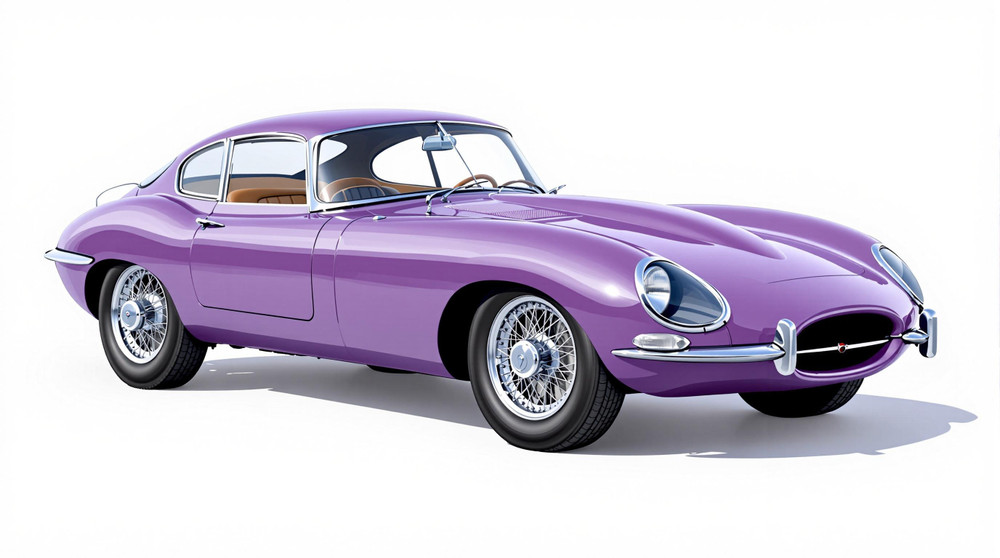Image of 1955 Jaguar D-Type, Note: These illustrations use artistic license and may differ from actual historical models.
Performance Metrics
Fundamental Metrics
Emotional Appeal
MMP Rating
| Engine Specifications | |
|---|---|
| Engine: | XK I6 |
| Displacement: | 3.4L |
| Horsepower: | 250-260 hp |
| Torque: | 242 lb-ft |
| Compression Ratio: | 9.0:1 |
| Ignition System: | Lucas ignition system |
| Cooling System: | Water-cooled |
| Performance Specifications | |
| 0-60 Time: | 4.7 seconds |
| 1/4 Mile Time: | 13.3 seconds |
| Top Speed: | 162 mph |
| Transmission and Drive | |
| Drive Type: | Rear-wheel drive |
| Transmission Type: | 4-speed manual |
| Fuel and Efficiency | |
| Fuel System Type: | Triple Weber carburetors |
| MPG: | Estimated 15-20 mpg (due to the age and type of the vehicle, this is a rough estimate) |
| Dimensions and Brakes | |
| Brakes: | Disc brakes |
| Wheelbase: | 90 inches |
| Weight: | 1,930 lbs |
Note: Specifications for classic cars are given to the best of our ability, considering the limited and variant data available.
Introduction
The 1955 Jaguar D-Type is not merely a car; it's a rolling sculpture, a testament to the zenith of automotive design and engineering of its era. Born from the competitive fires of Le Mans, this British sports racing car was manufactured by Jaguar Cars Ltd. Known for its aviation-inspired design and innovative technology, the D-Type became an icon of the 1950s racing scene. A unique fact that sets this vehicle apart is its record-breaking win at Le Mans, where it triumphed three consecutive times from 1955 to 1957, cementing its legendary status.
Design and Innovation
The D-Type's exterior styling is a harmonious blend of form and function, with its long, flowing lines and distinctive tail fin that improved stability at high speeds. The interior was a study in purposeful minimalism, with an emphasis on lightweight construction and driver-focused ergonomics. The materials used were of high quality for the time, with an emphasis on reducing weight without sacrificing durability. Technologically, the D-Type was ahead of its time with features like its monocoque chassis construction and disc brakes. Its color palette included British Racing Green, which became synonymous with British motorsports. The most iconic body style was the open-top roadster, designed specifically for endurance racing.
Historical Significance
The D-Type's impact on automotive design cannot be overstated. It set a new standard for aerodynamics in car design and pioneered the use of innovative materials and technologies. Its influence extended beyond racing; it inspired a generation of sports cars that followed. The D-Type stood out from its contemporaries with its unique monocoque construction and aerodynamic efficiency, elements that are now commonplace in modern vehicle design.
Performance and Handling
The 1955 Jaguar D-Type boasted impressive performance figures for its time, with a top speed exceeding 170 mph and capable of accelerating from 0-60 mph in just over 4 seconds. Its handling was equally remarkable; the car's sophisticated suspension system allowed it to navigate both smooth race tracks and challenging road conditions with grace. Driving a D-Type was an immersive experience; the roar of its powerful XK engine was music to any petrolhead's ears, while the responsive steering and firm grip connected the driver to the road in an almost telepathic manner.
Ownership Experience
While originally intended for competitive racing, the D-Type also found its way into private hands as a show car or high-performance collector's item. Maintenance requires specialized knowledge due to its unique construction and vintage technology but is generally manageable for those familiar with classic Jaguars. Reliability is typical of high-performance machines of its time—demanding but rewarding.
Fun Facts
A few fun facts about the Jaguar D-Type include its limited production run which makes each example highly coveted among collectors. Notable celebrities such as Steve McQueen have been associated with this marque. The vehicle has set numerous records in its heyday and has been a staple at prestigious historic motoring events. Despite criticism over practicality for everyday use, none can deny the exhilarating experience it provides.
Collector's Information
The current value range for a well-preserved 1955 Jaguar D-Type can be astronomical, often fetching millions at auction due to their rarity and historical significance. It is estimated that approximately 75 units were produced during its run. The value trend for this classic has been appreciating over time as collectors vie to add this piece of racing history to their portfolios.
Conclusion
The 1955 Jaguar D-Type stands as a paragon of mid-century automotive excellence—a vehicle that not only dominated the racing circuits but also captured the imaginations of car enthusiasts around the world. Its legacy endures as one of innovation, performance, and timeless beauty—a true jewel in the crown of automotive history.
1955 Jaguar D-Type Catalog of Parts
 1955 Jaguar D-Type Upper and Lower Ball Joint Boot. 5/8" upper I.D-BN 101-AUpper and Lower Ball Joint Boot. 5/8" upper I.D., 1-1/2" bottom I.D., 7/8" high. Each
1955 Jaguar D-Type Upper and Lower Ball Joint Boot. 5/8" upper I.D-BN 101-AUpper and Lower Ball Joint Boot. 5/8" upper I.D., 1-1/2" bottom I.D., 7/8" high. Each 1955 Jaguar D-Type Roll Bar Bushing. 1/2" high, with 1/2" hole. Each-BN 2Roll Bar Bushing. 1/2" high, with 1/2" hole. Each
1955 Jaguar D-Type Roll Bar Bushing. 1/2" high, with 1/2" hole. Each-BN 2Roll Bar Bushing. 1/2" high, with 1/2" hole. Each 1955 Jaguar D-Type Auto Brake Pedal Pad. 3-1/4" wide X 5-1/2" long. Each-CB 75-BAuto Brake Pedal Pad. 3-1/4" wide X 5-1/2" long. Each
1955 Jaguar D-Type Auto Brake Pedal Pad. 3-1/4" wide X 5-1/2" long. Each-CB 75-BAuto Brake Pedal Pad. 3-1/4" wide X 5-1/2" long. Each 1955 Jaguar D-Type Spark plug wire boot. Exclusive Metro part-RP 1-KSpark plug wire boot. Exclusive Metro part. Fits on the distributor cap end. Note: looks similar to coil boot, but is physically smaller. Replaces OEM# CO 2609. Each.
1955 Jaguar D-Type Spark plug wire boot. Exclusive Metro part-RP 1-KSpark plug wire boot. Exclusive Metro part. Fits on the distributor cap end. Note: looks similar to coil boot, but is physically smaller. Replaces OEM# CO 2609. Each.Why Choose Metro?
For over 100 years, Metro Moulded Parts has been the pinnacle of quality in classic car restoration parts. Our commitment to precision and authenticity in every component ensures a perfect fit and an OEM-level appearance.
- Expert Craftsmanship & Quality: Each part is a testament to our dedication to reliability and perfection, crafted from original designs and thoroughly tested.
- Advanced Technology: We use cutting-edge techniques to create flawless, long-lasting parts that surpass others in performance.
- SuperSoft Sponge – The Ultimate Door Seal: Not only are our door seals 30% softer than competitors', but they're also guaranteed to never leak. They effectively reduce wind and road noise, enhancing your classic car's comfort and driving experience.
- Proudly American: Our parts are a product of American craftsmanship, made in the USA with a spirit of excellence and heritage.
- Unrivaled Warranty: We back our products with a 30-year industry-leading warranty, a testament to our confidence in their quality.
Join us in preserving the legacy of classic cars with parts that are crafted for perfection, not just made.

